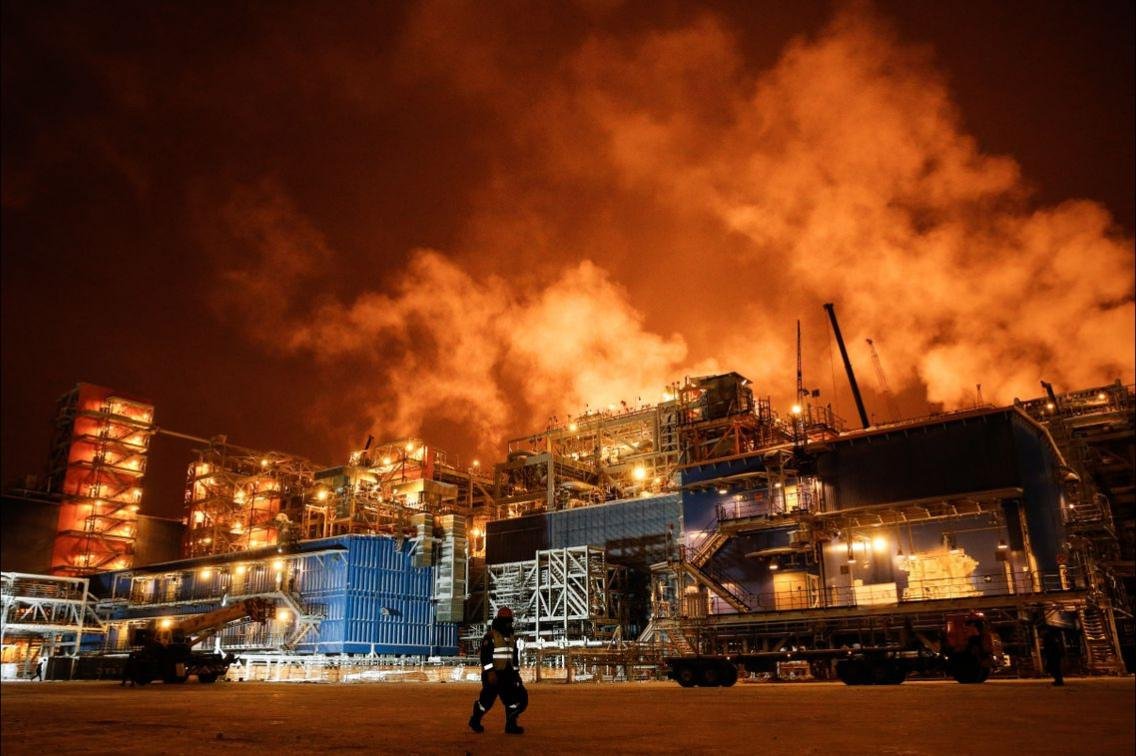espite all the previous crises with Putin’s Russia, the European Union has never reduced its imports of Russian gas. Will the war declared in Ukraine on Thursday put an end to this dependence? Nothing is less certain, once the storm has passed…
As it seeks to harshly sanction Russia for the invasion of Ukraine, underway since Thursday, can Europe do without Russian gas?
As it seeks to harshly sanction Russia for the invasion of Ukraine, underway since Thursday, can Europe do without Russian gas?
Currently, the answer is no, says Laurent Horvath, Swiss hydrocarbon specialist. The European Union is 40% dependent on Russian gas supplies. The other players who contribute the rest are unable to make up the difference.
What about Qatar, the world’s second largest gas exporter behind Russia? It remains linked to its contracts with China: 95% of its exports are concerned. This can only play on a small 5%.
Follow here the live of Saturday February 26 on the war in Ukraine
As for the other producers, they are having bad luck in the North Sea, where many gas sites have been closed for a good part of 2021, for maintenance and the decline of certain fields. UK, Dutch and even Norwegian deliveries are down. There remains American shale gas… Exports in the form of liquefied gas (LNG) sent by ship from the United States have seriously increased. In January, they accounted for more than half of all LNG imported into Europe. Again, Laurent Horvarth tempers. This is extra. LNG does not even represent 15% of the gas sold and European countries are under-equipped with ports capable of accommodating LNG tankers and regasifying the liquid.
Germany, one of the countries most dependent on Russian gas along with Austria and Italy, for example, has no terminal for LNG. The Brunsbüttel project, on the north coast in the state of Schleswig-Holstein, should not be completed before 2026, at the earliest.
Why does the EU remain in this situation of dependence?
Mainly because European leaders have listened more to European (Total, Engie, Shell, etc.) and Russian (Gazprom, Rosneft, etc.) gas producers than to scientists, who have been recommending for twenty years to leave all hydrocarbons in the ground. , says the Swiss expert. Climate and sovereignty, same fight.
In 2014, after the annexation of Crimea by Russia, the European Union had nevertheless attempted to question its vulnerability to Russian gas. In April, the European Parliament voted to abandon a gas pipeline to Bulgaria, the South Stream. In May, the Commission, then chaired by the Portuguese Manuel Barroso, submitted to the leaders two huge documents on the Union’s energy security. They included avenues for reducing energy consumption and finding new sources of supply…
In vain. The EU continued to build gas-equipped buildings – 39% of new housing in Germany in 2020 – and stacked up for contracts and the development of new gas pipelines with Russia. In 2016, Gazprom, under Putin’s orders, rehired former German Chancellor Schröder to tout a doubling of the now frozen Nord Stream.
In 2017, they seduced Hungarian President Viktor Orban without difficulty to overcome the end of the South Stream: the gas pipeline from Turkey now reaches Hungary, via Bulgaria and Serbia. While the United States and Poland are hitting on Germany, which is getting bogged down in Russian gas…no one is intervening for this southern route, which bypasses Ukraine.
Finally, in 2018, Gazprom signed a new contract with Austria increasing deliveries until 2040. Austria is important for the Russians, because it plays a central pivot role in Europe, ensuring the transit of approximately 30 billion cubic meters of Russian gas each year to Italy, France, Germany, Hungary, Slovenia and Croatia.
The best answer, according to her, is the energy transition with more renewables and better controlled consumption. But the EU is not taking the path. It has just classified gas and nuclear as possible green investments. If this measure is adopted in the spring, the money will go into gas, not to decarbonize housing, transport, and deploy renewables.
And it will further strengthen Russian gas, the world’s leading exporter, with functional infrastructure and seemingly inexhaustible reserves. Fields developed in the Yamal Peninsula will be exploited until 2132, assured Aleksei Miller, CEO of Gazprom, in September. Two months later, President Putin announced that Russia will strive to achieve carbon neutrality in its economy by 2060 at the COP26 climate conference in Scotland.



